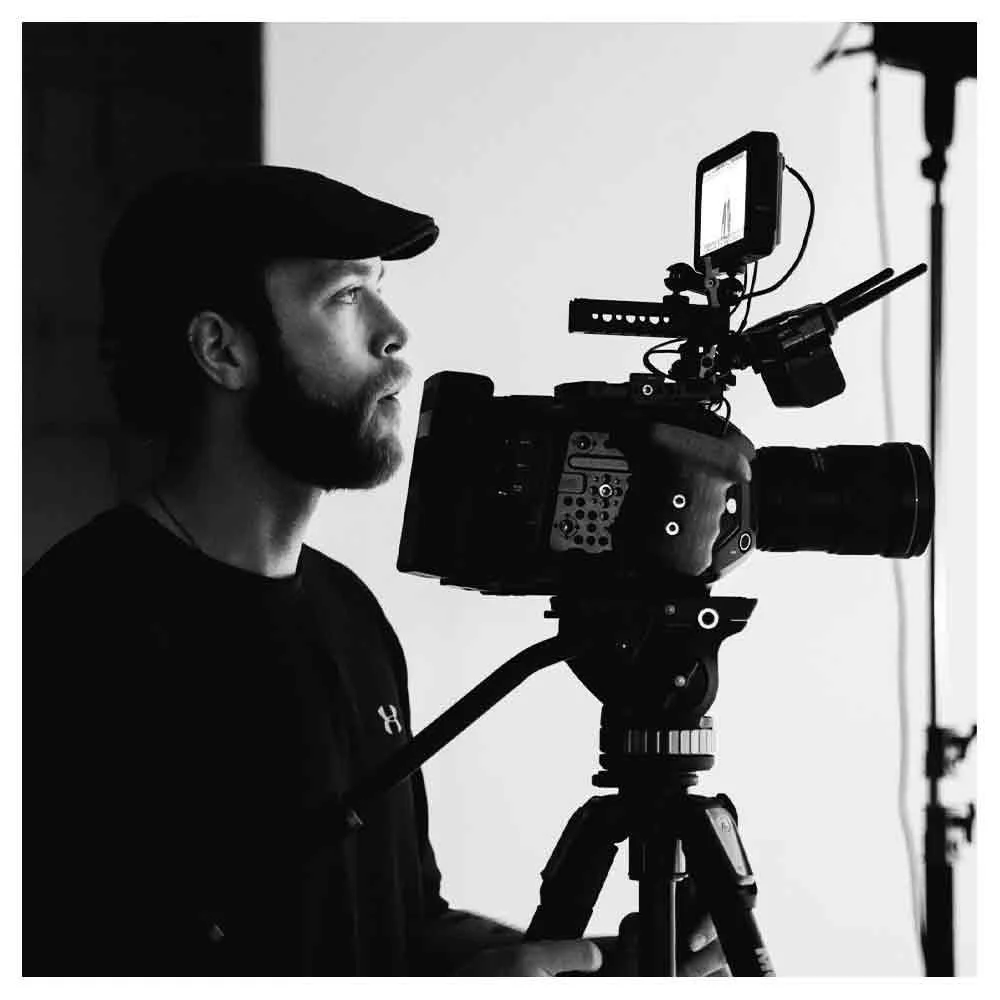21 Habits that Define a Creative Mind
Everyone, at some point, has wondered what drives a creative mind to see the world in vivid colors, even in the most mundane of situations. Behind every creative genius lies not just raw talent, but also a set of habits and perspectives that propel their imagination.
Here are 21 habits that truly define a creative mind:
1. Embracing the Unknown
A creative mind thrives in uncertainty. They view it as a playground for new ideas and opportunities to craft original ideas. They’re not fearful but rather intrigued by the unknown, finding ways to shape it into something beautiful.
2. Endless Curiosity
Creative thinkers are insatiably curious. They question norms, wonder how things work, and why most people think a certain way. This allows them to see things differently and continuously refines their creative thought process.
3. Relishing Multiple Perspectives
They understand the value of viewing problems from different perspectives. By embracing other perspectives, they unearth a plethora of different solutions, expanding their horizons and enriching their creative endeavors.
4. Mindful Mind-Wandering
Letting their mind wander is not an accident; it's a strategy. This habit unlocks their creative potential, allowing new thoughts to emerge, often leading to those 'Aha!' moments.
5. Championing Personal Growth
Through self-awareness and an emphasis on personal growth, they continuously hone their creative skills. They value learning and self-improvement, understanding that a broader knowledge base ignites more original ideas.
6. Positive Emotion Harnessing
Positive emotions serve as fuel. A creative brain often associates happiness, excitement, and even sadness with inspiration, turning these emotions into magnificent pieces of art, writing, or innovative solutions.
7. Daily Dose of Creativity
Integrating creativity into everyday life ensures that their creative muscles are always flexing. Whether doodling, dreaming, or dabbling in a creative outlet after work, they’re always creating.
8. Redefining Failures
To them, there's no correct answer. Failures are just detours leading to unexpected adventures. They know that sometimes the best ideas come from lessons learned through past missteps.
9. Tapping into Brain Networks
Recent research indicates the important role of brain networks, especially the default network and salience networks. A creative mind often taps into these to enhance functional connectivity, interlinking ideas, and experiences.
10. Engage with the World
For them, the world isn’t just a place to exist but a vast expanse to engage with, full of mysteries to unravel, stories to tell, and exciting things to create.
11. Embracing Past Experiences
Past experience and personal experience are their treasure troves. They dig deep into their memories, combining them with present moments, to craft narratives and ideas that resonate on a universal scale.
12. Commitment to Self-expression
Self-expression isn’t just a habit; it’s a lifeline. Whether through art, writing, or simply sharing their ideas, expressing themselves is paramount for their well-being and creativity.
13. Collaborative Creativity
Creative people understand the importance of collaboration. They tend to work with others, mix their ideas with other perspectives, and often find that joint endeavors lead to larger-than-life outcomes.
14. Seeking Inspiration Everywhere
From a rustling leaf to a bustling city, they seek inspiration in the mundane and the magnificent. Every corner of lifehides a spark, waiting to be kindled.
15. A Constant Thirst for Knowledge
Their creative endeavors and creative achievement often stem from their passion for learning. Books, art, cultures, sciences - they're curious about them all, always expanding their horizons.
16. Flexibility in Thinking
They don’t fixate on one solution. Instead, they brainstorm multiple possibilities, test them out, and are flexible in their approach to solve problems.
17. Valuing Imagination Over Logic
Sometimes logic can be a creativity barrier. Creative minds value their imagination, knowing that not everything beautiful makes sense, and not everything that makes sense is beautiful.
18. Cherishing Solitude
At times, solitude is their chosen companion. It allows them to delve deep into their thoughts, reflecting upon their experiences and feelings, and nurturing their creative potential.
19. Unconventional Problem Solving
A problem is a puzzle, and they're ready to play. They look beyond conventional solutions, diving into their creative brain to find unique ways to tackle challenges.
20. Setting their Mind Free
Boundaries? What boundaries? They don’t confine their minds with limitations but set them free, allowing them to fly high and dive deep into the ocean of creativity.
21. Living Authentically
Above all, they live authentically, staying true to themselves and their visions, even if it means going against the tide. Their authenticity shines through their work, making them stand out and touch the hearts of many.
Conclusion
In conclusion, a creative mind is not just about talent; it's about cultivating habits, attitudes, and perspectives that nourish creativity. By embracing these habits, we can all tap into our creative genius and lead lives filled with color, excitement, and, most importantly, self-fulfillment. Whether you're an artist, a writer, or someone looking to add a touch of creativity to their life, remember - creativity isn't just about thinking outside the box, but realizing there is no box in the first place.
Frequently asked questions about a creative mind (FAQ)
What is a Creative Mind?
A creative mind refers to an individual or a collective brain power endowed with the ability to produce original ideas and solve problems in new and exciting ways. It’s where imagination blooms and creative ideas flourish, stepping out of the conventional boundaries to see the world through multiple perspectives.
How do Creative People Think Differently?
Creative people tend to employ a creative thinking approach, enabling them to view problems and solutions from different perspectives. They leverage their creative brains to:
Imagine various possibilities
Engage with creative endeavors
Develop new thoughts and new ideas
They embrace the uncertainty and the unknown, allowing their minds to wander and making the creative thought process a journey of discovery.
Can Creative Thinking be Improved?
Absolutely! Improving creativity is about harnessing your creative potential and allowing it to flourish. Here’s how:
Engage in activities that challenge your brain and spark your imagination.
Practice self-expression through art, writing, and other creative outlets.
Cultivate self-awareness and focus on personal growth.
Regularly exposing oneself to different solutions, learning, and seeking inspiration play important roles in fostering creative achievement.
How does a Creative Person Approach Everyday Life?
A creative person approaches everyday life with a sense of wonder and curiosity. They see life as a canvas filled with endless possibilities, enabling them to create exciting things and see things differently. They find creative muscles in ordinary tasks and harness positive emotions to fuel their creative endeavors.
Can a Creative Genius be Made, or is it Inborn?
The essence of a creative genius lies in both inherent ability and nurtured skill. While some people may have a natural inclination towards creative thought, continuous learning, experience, and practice can significantly enhance one’s creative skills.
How do Past and Personal Experiences Influence Creativity?
Past experience and personal experience significantly impact the creative process. They act as a reservoir of knowledge, providing the raw materials for the creative mind to play, experiment, and invent. These experiences allow for the synthesis of best ideas, merging other perspectives to forge unique pathways in problem-solving.
How can I Align my Creative Process with my Creative Potential?
To align your creative process with your creative potential, it’s essential to:
Be open to multiple perspectives
Embrace different solutions
Explore various creative outlets
By embracing the endless possibilities of the creative brain, individuals can live their lives to the full potential, cultivating more original ideas and enriching the world with their creative achievement.
How Important is the Role of Brain Networks in Creativity?
Brain networks, specifically the default network and salience networks, play an important role in creativity. These networks are involved in processes such as mind wander, self-referential thought, and the detection of salient events, which are crucial for cultivating a creative mind and fostering original ideas.
How does the International Coach Federation Contribute to Creative Thinking Development?
The International Coach Federation promotes creative thinking development by endorsing coaching practices that inspire self-discovery and encourage individuals to explore their creative potential. They emphasize self-awareness, personal growth, and the development of creative skills, aiding people in unlocking their creative genius.
Does Research Validate the Existence of Highly Creative People?
Indeed, research confirms the existence of highly creative people, who display enhanced functional connectivity and the ability to view the world from different perspectives. These individuals possess the innate or developed capacity to create, imagine, and bring forth original ideas that enrich our lives and the world.
How to Engage with the Creative Process?
To actively engage with the creative process, one should:
Embrace the unknown and be willing to take risks
Focus on being present and open to new things
Allow for the confluence of different perspectives and experiences
Doing so allows the unfolding of creative achievement and the realisation of one’s creative potential in both personal and professional realms.






























